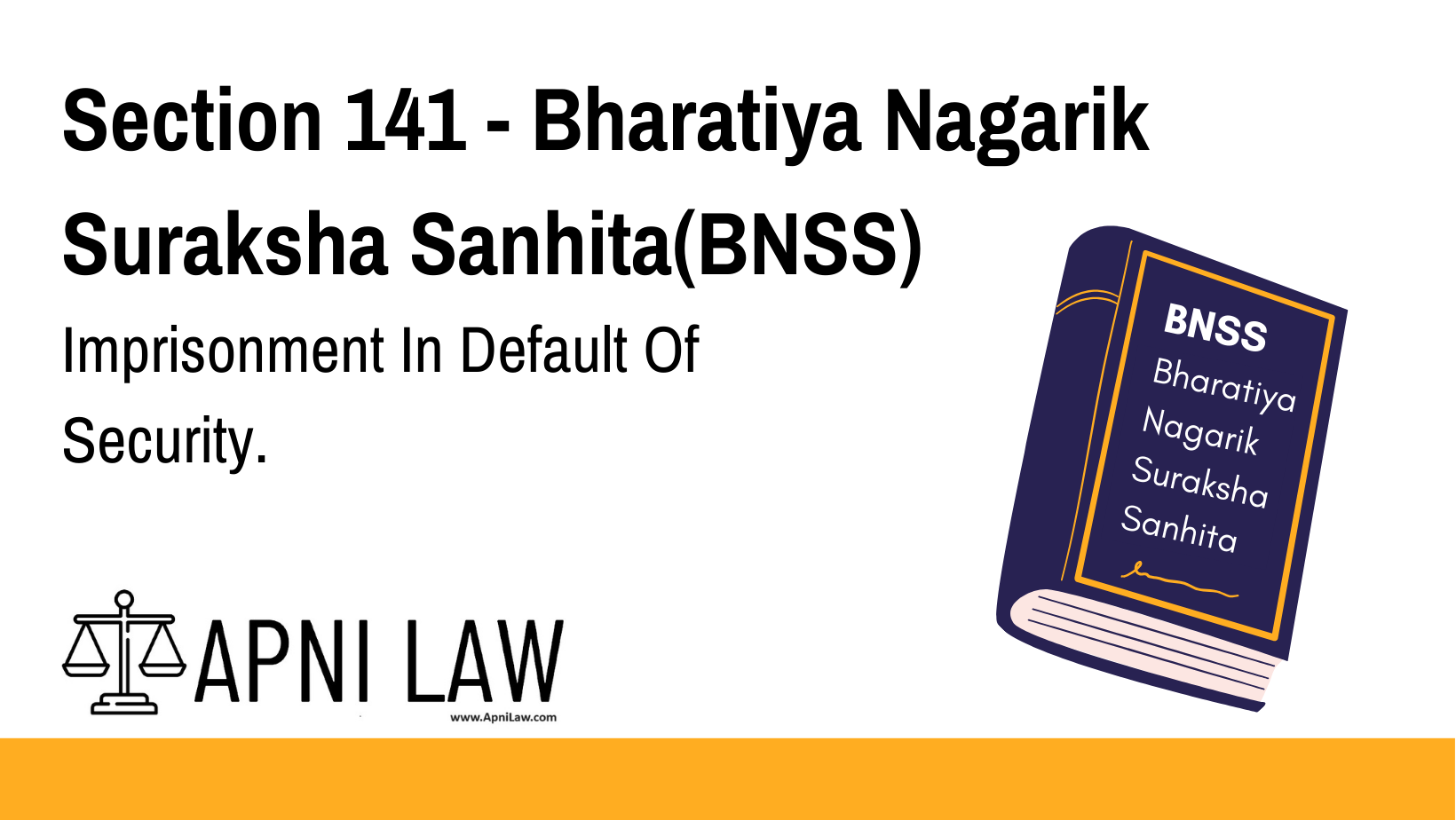Code
(1) (a) If any person ordered to give security under section 125 or section 136
does not give such security on or before the date on which the period for which such
security is to be given commences, he shall, except in the case next hereinafter mentioned,
be committed to prison, or, if he is already in prison, be detained in prison until such period
expires or until within such period he gives the security to the Court or Magistrate who
made the order requiring it;
(b) if any person after having executed a bond or bail bond for keeping the peace in
pursuance of an order of a Magistrate under section 136, is proved, to the satisfaction of
such Magistrate or his successor-in-office, to have committed breach of the bond or bail
bond, such Magistrate or successor-in-office may, after recording the grounds of such
proof, order that the person be arrested and detained in prison until the expiry of the period
of the bond or bail bond and such order shall be without prejudice to any other punishment
or forfeiture to which the said person may be liable in accordance with law.
(2) When such person has been ordered by a Magistrate to give security for a period
exceeding one year, such Magistrate shall, if such person does not give such security as
aforesaid, issue a warrant directing him to be detained in prison pending the orders of the
Sessions Judge and the proceedings shall be laid, as soon as conveniently may be, before
such Court.
(3) Such Court, after examining such proceedings and requiring from the Magistrate
any further information or evidence which it thinks necessary, and after giving the concerned person a reasonable opportunity of being heard, may pass such order on the case as it
thinks fit:
Provided that the period (if any) for which any person is imprisoned for failure to give
security shall not exceed three years.
(4) If security has been required in the course of the same proceeding from two or
more persons in respect of any one of whom the proceedings are referred to the Sessions
Judge under sub-section (2) such reference shall also include the case of any other of such
persons who has been ordered to give security, and the provisions of sub-sections (2)
and (3) shall, in that event, apply to the case of such other person also, except that the
period (if any) for which he may be imprisoned, shall not exceed the period for which he was
ordered to give security.
(5) A Sessions Judge may in his discretion transfer any proceedings laid before him
under sub-section (2) or sub-section (4) to an Additional Sessions Judge and upon such
transfer, such Additional Sessions Judge may exercise the powers of a Sessions Judge
under this section in respect of such proceedings.
(6) If the security is tendered to the officer in charge of the jail, he shall forthwith refer
the matter to the Court or Magistrate who made the order, and shall await the orders of such
Court or Magistrate.
(7) Imprisonment for failure to give security for keeping the peace shall be simple.
(8) Imprisonment for failure to give security for good behaviour shall, where the
proceedings have been taken under section 127, be simple, and, where the proceedings
have been taken under section 128 or section 129, be rigorous or simple as the Court or
Magistrate in each case directs.
Explanation:
This section deals with the consequences of failing to provide security. Specifically, it is for maintaining peace as ordered by a Magistrate under Section 136 of the BNSS. It outlines the procedures for imprisonment and detention if an individual fails to furnish the required security.
Illustration:
- A person is ordered by a Magistrate to provide security for maintaining peace. It is for a period of one year under Section 136 of the BNSS.
- The person fails to provide the security within the stipulated time.
- According to Section 136(1)(a), the Magistrate will commit the person to prison. This is until the period of security expires or until they provide the security.
Common Questions and Answers:
- Q: What happens if a person, after providing security, breaches the bond?
A: The Magistrate can order the arrest and detention of the person until the bond period expires (Section 136(1)(b)).
- Q: What if the security period is more than a year?
A: The Magistrate will refer the case to the Sessions Judge (Section 136(2)).
- Q: What is the maximum imprisonment period for failing to provide security?
A: The maximum imprisonment period is three years (Section 136(3)).
- Q: Can proceedings be transferred to an Additional Sessions Judge?
A: Yes, the Sessions Judge can transfer proceedings to an Additional Sessions Judge (Section 136(5)).








